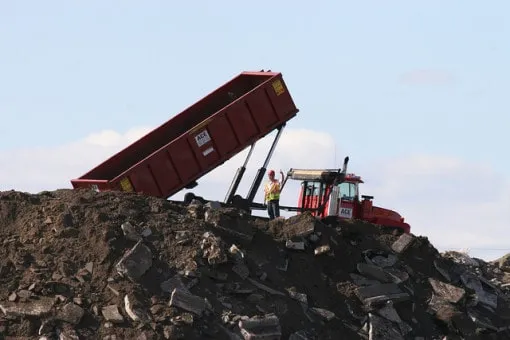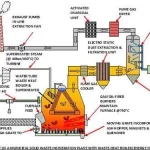Solid waste management is a term that is used to refer to the process of collecting and treating solid wastes. It also offers solutions for recycling items that do not belong to garbage or trash. As long as people have been living in settlements and residential areas, garbage or solid waste has been an issue. Waste management is all about how solid waste can be changed and used as a valuable resource. Solid waste management should be embraced by each and every household including the business owners across the world. Industrialization has brought a lot of good things and bad things as well. One of the negative effects of industrialization is the creation of solid waste.
According to Britannica, “Solid-waste management, the collecting, treating, and disposing of solid material that is discarded because it has served its purpose or is no longer useful. Improper disposal of municipal solid waste can create unsanitary conditions, and these conditions in turn can lead to pollution of the environment and to outbreaks of vector-borne disease—that is, diseases spread by rodents and insects.”

Various Sources of Solid Waste
Everyday, tonnes of solid waste is disposed off at various landfill sites. This waste comes from homes, offices, industries and various other agricultural related activities. These landfill sites produce foul smell if waste is not stored and treated properly. It can pollute the surrounding air and can seriously affect the health of humans, wildlife and our environment. The following are major sources of solid waste:
Residential
Residences and homes where people live are some of the major sources of solid waste. Garbage from these places include food wastes, plastics, paper, glass, leather, cardboard, metals, yard wastes, ashes and special wastes like bulky household items like electronics, tires, batteries, old mattresses and used oil. Most homes have garbage bins where they can throw away their solid wastes in and later the bin is emptied by a garbage collecting firm or person for treatment.
Industrial
Industries are known to be one of the biggest contributors of solid waste. They include light and heavy manufacturing industries, construction sites, fabrication plants, canning plants, power and chemical plants. These industries produce solid waste in form of housekeeping wastes, food wastes, packaging wastes, ashes, construction and demolition materials, special wastes, medical wastes as well as other hazardous wastes.
Commercial
Commercial facilities and buildings are yet another source of solid waste today. Commercial buildings and facilities in this case refer to hotels, markets, restaurants, go downs, stores and office buildings. Some of the solid wastes generated from these places include plastics, food wastes, metals, paper, glass, wood, cardboard materials, special wastes and other hazardous wastes.
Institutional
The institutional centers like schools, colleges, prisons, military barracks and other government centers also produce solid waste. Some of the common solid wastes obtained from these places include glass, rubber waste, plastics, food wastes, wood, paper, metals, cardboard materials, electronics as well as various hazardous wastes.
Construction and Demolition Areas
Construction sites and demolition sites also contribute to the solid waste problem. Construction sites include new construction sites for buildings and roads, road repair sites, building renovation sites and building demolition sites. Some of the solid wastes produced in these places include steel materials, concrete, wood, plastics, rubber, copper wires, dirt and glass.
Municipal services
The urban centers also contribute immensely to the solid waste crisis in most countries today. Some of the solid waste brought about by the municipal services include, street cleaning, wastes from parks and beaches, wastewater treatment plants, landscaping wastes and wastes from recreational areas including sludge.
Treatment Plants and Sites
Heavy and light manufacturing plants also produce solid waste. They include refineries, power plants, processing plants, mineral extraction plants and chemicals plants. Among the wastes produced by these plants include, industrial process wastes, unwanted specification products, plastics, metal parts just to mention but a few.
Agriculture
Crop farms, orchards, dairies, vineyards and feedlots are also sources of solid wastes. Among the wastes they produce include agricultural wastes, spoiled food, pesticide containers and other hazardous materials.
Biomedical
This refers to hospitals and biomedical equipment and chemical manufacturing firms. In hospitals there are different types of solid wastes produced. Some of these solid wastes include syringes, bandages, used gloves, drugs, paper, plastics, food wastes and chemicals. All these require proper disposal or else they will cause a huge problem to the environment and the people in these facilities.


